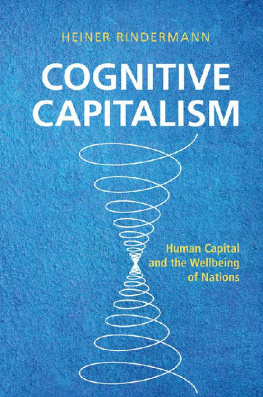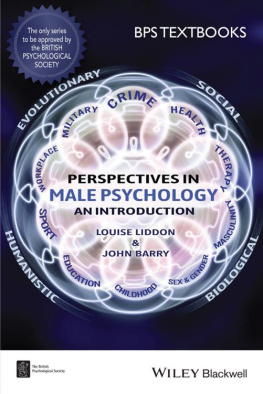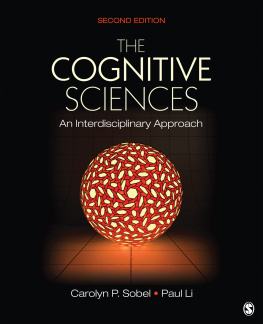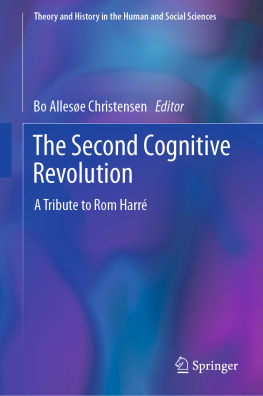Nations can vary greatly in their wealth, democratic rights and the wellbeing of their citizens. These gaps are often obvious, and by studying the flow of immigration one can easily predict peoples wants and needs. But why are there also large differences in the level of education indicating disparities in cognitive ability? How are they related to a countrys economic, political and cultural development? Researchers in the paradigms of economics, psychology, sociology, evolution and cultural studies have tried to find answers for these hotly debated issues. In this book, Heiner Rindermann establishes a new model: the emergence of a burgher-civic world, supported by long-term background factors, furthered education and thinking. It initiated a reciprocal development changing society and culture, resulting in past and present cognitive capital and wealth differences. This is an important text for graduate students and researchers in a wide range of fields, including economics, psychology, sociology and political science, and those working on economic growth, human capital formation and cognitive development.
Heiner Rindermann is Professor of Educational and Developmental Psychology at Chemnitz University of Technology, Germany. He has published approximately 150 articles and books, and is a fellow of the Association for Psychological Science (APS). His research focuses on cognitive human capital from an interdisciplinary perspective, bringing together ideas on cognitive competence, cognitive development, productivity, politics and culture on individual and national levels.
University Printing House, Cambridge CB2 8BS, United Kingdom
One Liberty Plaza, 20th Floor, New York, NY 10006, USA
477 Williamstown Road, Port Melbourne, VIC 3207, Australia
314321, 3rd Floor, Plot 3, Splendor Forum, Jasola District Centre, New Delhi 110025, India
79 Anson Road, #0604/06, Singapore 079906
Cambridge University Press is part of the University of Cambridge.
It furthers the Universitys mission by disseminating knowledge in the pursuit of education, learning, and research at the highest international levels of excellence.
www.cambridge.org
Information on this title: www.cambridge.org/9781107050167
DOI: 10.1017/9781107279339
Heiner Rindermann 2018
This publication is in copyright. Subject to statutory exception and to the provisions of relevant collective licensing agreements, no reproduction of any part may take place without the written permission of Cambridge University Press.
First published 2018
Printed in the United Kingdom by Clays, St Ives plc
A catalogue record for this publication is available from the British Library .
Library of Congress Cataloging-in-Publication Data
Names: Rindermann, Heiner, 1966 author.
Title: Cognitive capitalism : human capital and the wellbeing of nations / Heiner Rindermann.
Description: Cambridge, United Kingdom ; New York, NY : University Printing House, 2018. | Includes bibliographical references and index.
Identifiers: LCCN 2017024439 | ISBN 9781107050167 (hardback) | ISBN 9781107651081 (pbk.)
Subjects: | MESH: Quality of Life | Cognition | Intelligence | Socioeconomic Factors | Educationeconomics | Capitalism
Classification: LCC QP363.3 | NLM WA 30 | DDC 612.8/2339dc23
LC record available at https://lccn.loc.gov/2017024439
ISBN 978-1-107-05016-7 Hardback
ISBN 978-1-107-65108-1 Paperback
Cambridge University Press has no responsibility for the persistence or accuracy of URLs for external or third-party internet websites referred to in this publication and does not guarantee that any content on such websites is, or will remain, accurate or appropriate.
Contents
Figures
Tables
Preface
Why are we much richer today than our ancestors? Why in the last centuries so many nations have developed towards liberty, rule of law and peace? And why are some nations still on average much richer, freer and safer than others which lag behind? Why do countries and populations progress or regress, prosper or fail, fall or rise?
People as individuals as well as nations had and have to face large differences in given political and economic conditions. And peoples themselves, from historical and cross-country comparisons, largely differ in habits, values, preferences and, less known but importantly, in competences. All these characteristics are connected. Of course they are connected; simple correlational studies show empirical relations. However, mere descriptions of various indicators of development and of their usually positive associations are intellectually unsatisfactory. We want to understand why peoples and societal conditions are how they are, why they are interrelated, what causes are at work and what we can learn to improve the fate of societies. Big questions!
). They shape our perceptions of what happens around us and also influence our judgement in epistemic questions; in those questions in which answers have to be solely judged according to their approximation of truth and not according to their affinity to our likes and dislikes.
We consider cognitive capital to be crucial for economic growth, especially in modernity. Cognitive capital is conceptualised as the ability to think , to solve problems by cognitive means, to reason inductively and deductively, to deal with abstraction, to understand and construct meaning, to learn, to acquire and use true and relevant knowledge . In psychology, this cognitive capital is termed intelligence, cognitive ability or cognitive competence. Cognitive capital has driven and continuously drives technological and cultural modernisation. For these macro-social processes, the level of high ability cognitive classes is especially important, shaping an intellectual climate, working through innovation and management, expressing itself in technology and companies, in law and politics, in science and the arts.
In historic development and in cross-cultural comparison, cognitive ability and its rise are related to the emergence of a burgher-civic world, supported by cultural factors furthering education and intelligence. Such a development includes mediated reciprocal effects, from culture via physical, societal and psychological environments to ability and back to environment and culture. This has led in the past and present to differences in cognitive capital and wealth.
However, this is not the only approach developed in the field. What impact do the accidental determinants of geography, climate and mineral resources and the less accidental circumstances of history, politics and power structures have? And what about evolutionary factors? The quality of political and economic institutions? The contribution of a scientific model cannot be sufficiently evaluated by mere empirical proof using data, statistics and causal modelling, but also needs a careful comparison to alternative, complementary or rival scientific approaches.
I hope this book will stimulate discussion and scientific progress. I could not have written it without the help of many others. First of all, every study is built on the work of many predecessors, whose work and discoveries enriched our understanding and thinking. Colleagues helped me through their research and stimulating, sometimes critical, comments. There is a vivid international scene; we remain close by reading the publications of our colleagues, by email and by exchanges at annual meetings. My work benefited from receiving stimulating ideas and extensive data sets. The best way to honour such contributions is by referring to and working with them. In particular, I give thanks to David Becker, Gregory Christainsen and Justus Snger, who carefully checked earlier drafts of the book and contributed many valuable suggestions. Erich Weede and Garett Jones read my final drafts, which then turned out to be very preliminary versions as they were greatly improved by their advice.









